
Stress Management Basics
Stress management consists of a variety of psychological measures to reduce tension and improve quality of life. Even though stress is considered a subjective reaction to negative experiences, it is readily quantifiable using various psychological assessment tools. Simple methods such as getting a hobby, exercising, deep breathing, reading novels, taking a walk in park or a forest, spa treatment and music distract your mind by focusing on something other than the causative factor. Other validated methods such as cognitive therapy, meditation, cranial release techniques and mindfulness exercises may influence stress related hormone levels (adrenalin, noradrenaline, cortisol) in blood.
- Important notification about information and brand names used in this slideshow!
- Photo courtesy of Livin' Spoonful by Flickr : www.flickr.com/photos/59030623@N03/8633086232/
- Clinical nutrition by Alan R Gaby

Which Foods Work?
Comfort foods are known to restructure nerve connections (synaptic remodeling) in the brain to reduce the response to a negative experience by way of altering the brain’s perception of action-reward-circuits. These effects have been shown to last a long time even after the comfort eating is stopped. Foods that increase serum levels of serotonin, provide adequate energy for increased demand of an active lifestyle, boost the immune responses, and contain essential vitamins like D, C, A and B have been shown to reduce stress. Many individuals believe that every food is a comfort food and get into bad eating habits resulting in obesity and other non-communicable diseases.
- Important notification about information and brand names used in this slideshow!
- Photo courtesy of Livin' Spoonful by Flickr : www.flickr.com/photos/59030623@N03/8633126050/
- Clinical nutrition by Alan R Gaby
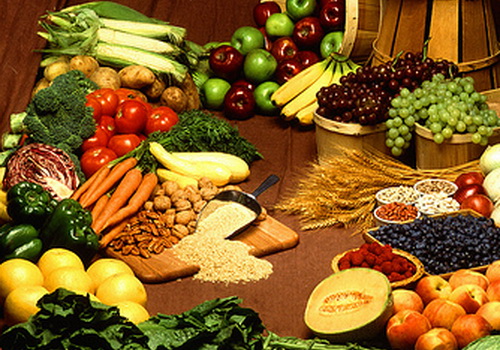
Complex Carbs
Complex carbohydrates help in many ways to maintain a healthy body. They are digested slowly and release sugar into the bloodstream at a more controlled, steady rate — rather than flooding the system. Due to insoluble fibers in complex carbohydrate rich foods, more fluid is retained in the bowel, something that prevents constipation. Studies have shown that the release of serotonin, also known as the feel good chemical in the brain, is directly proportionate to a person's carbohydrate intake. Intake of complex carbohydrates maintains a steady level of serotonin for longer compared to simple carbohydrates which cause a short lasting spike of serotonin.
- Important notification about information and brand names used in this slideshow!
- Photo courtesy of U.S. Department of Agriculture by Flickr : www.flickr.com/photos/usdagov/8455858761/
- Clinical nutrition by Alan R Gaby

Raw Veggies
Vegetables are an excellent source of essential vitamins and minerals. Cooking is known to reduce the content of vitamins in food and eating them raw instead ensures that no loss of nutrients is incurred. Raw vegetables are also used as a method for distracting oneself. Eating these foods relaxes the clenched jaw often seen in people suffering from severe stress and prevents people from consuming more calories than they need by replacing the usual comfort foods like French fries and burgers.
- Important notification about information and brand names used in this slideshow!
- Photo courtesy of jacqueline by Flickr : www.flickr.com/photos/sweetbeetandgreenbean/3229375284/
- Clinical nutrition by Alan R Gaby

Oranges
Oranges are rich in vitamin C. Vitamin C is essential for tissue repair, wound healing and mucosal function. A study has shown that intake of vitamin C just before a stressful task reduces blood pressure, heart rate and stress related hormone levels such as cortisol and adrenalin. Vitamin C is vital for proper immune function. High stress levels are associated with an increased incidence of infections and it is essential to have an active immune system to ward off any probable infections. Cortisol levels in the blood have been shown to be inversely related to vitamin C intake. Cortisol is a hormone that prepares the body for “fright, flight, fight” reactions.
- Important notification about information and brand names used in this slideshow!
- Photo courtesy of Arnaud Desbordes by Flickr : www.flickr.com/photos/orangesmell/161956272/
- Clinical nutrition by Alan R Gaby

Spinach
Green leafy vegetable are an excellent source of magnesium. Magnesium plays a key role in many essential biosynthetic processes as a co-factor, co-enzyme, regulator and catalyst. Glutamate is an excitatory neurotransmitter and a glutamate receptor known as NMDA is blocked by magnesium unless the membrane potential is already increased by AMPA and kainite receptors. Therefore, magnesium prevents nerve excitation and helps prevent convulsions. Magnesium is used to treat eclamptic fits in pregnancy induced hypertension. Similarly due to its inhibitory effect, it reduces stress-related neural activity. Magnesium also has an anti-inflammatory action and improves cardiac health after heart attacks.
- Important notification about information and brand names used in this slideshow!
- Photo courtesy of Ted Major by Flickr : www.flickr.com/photos/ted_major/5375353078/
- Clinical nutrition by Alan R Gaby
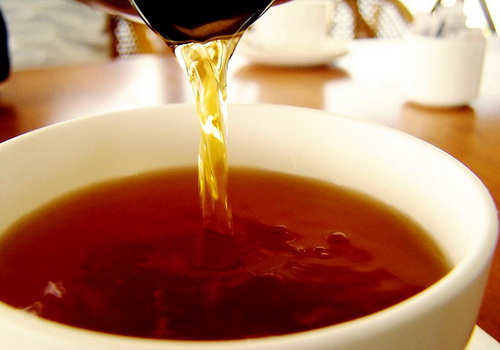
Black Tea
Black tea is better than coffee as a stress reliever because the high caffeine content of coffee stimulates cerebral function and increases the effects of stress. Studies have shown significantly lower cortisol levels in regular tea drinkers than in individuals consuming other beverages. A study done in Germany revealed that regular tea consumption improves the function of the lining cells of blood vessels (endothelium) reducing the formation of cholesterol plaques. Theaflavin is a compound in black tea which helps organize lipids into small water soluble micelles. Lipids are released into the blood steam in large quantities and lead to plaque formation especially when the capacity of the cells to produce lipid micelles is exceeded. Another German study has shown that the addition of milk actually stops this lipid organizing action of black tea!
- Important notification about information and brand names used in this slideshow!
- Photo courtesy of patrick george by Wikimedia Commons : commons.wikimedia.org/wiki/File:Black_tea.jpg
- Clinical nutrition by Alan R Gaby

Almonds
Almonds are a rich source of magnesium, tryptophan, vitamin E, choline and calcium. Magnesium is essential for stabilizing nerve cells. Tryptophan is the amino acid required in the synthesis of serotonin which is the calming chemical of the brain. Vitamin E is needed for a properly functioning immune system to fight off inevitable infections. Choline is a key ingredient in the biosynthesis of acetylcholine, which is a neurotransmitter associated with stress related neural activity. Calcium stabilizes neuronal membrane potentials and is essential to produce inhibitory post synaptic potentials (IPSP) which blunt the neuronal responses to certain stimuli leading to an overall calming effect.
- Important notification about information and brand names used in this slideshow!
- Photo courtesy of James Sann by Flickr : www.flickr.com/photos/hooverdust/272946521/
- Clinical nutrition by Alan R Gaby
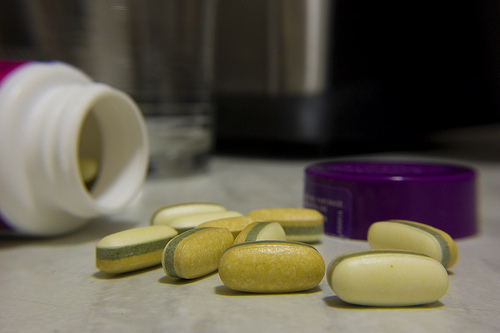
Herbal Supplements
Selecting herbal supplements is a nightmare because of their shady origins and questionable purity. Good herbal supplements that contains tryptophan, magnesium, calcium, and vitamins C, B, A and D will actually help reduce stress as long as it actually contains all that is mentioned on the label. Herbal supplements are expensive and it is always better to avoid artificial preparations and go for natural sources of essential stress reducing nutrients. Concentrated extracts of vitamins and minerals are of limited use because the body always excretes the excess through urine or stools and keeps only what is necessary. High intake might be harmful in some cases.
- Important notification about information and brand names used in this slideshow!
- Photo courtesy of Clare Bell by Flickr : www.flickr.com/photos/southpaw2305/4047557845/
- Clinical nutrition by Alan R Gaby
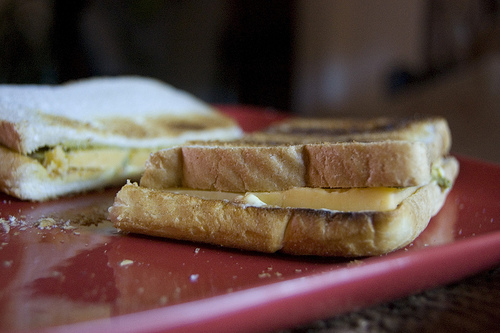
Treat Yourself To A Bedtime Snack
Sleep deprivation is a common result of a stressful lifestyle. Hunger reduces sleep. Leptin is a chemical that is associated with satiety while ghrelin signals hunger. Ghrelin is also known to increase stress-related neural activity. With a bedtime snack, serum leptin levels are elevated and ghrelin is reduced. Carbohydrate-rich snacks elevate blood sugar levels signaling the brain to synthesize serotonin. Serotonin is the calming chemical of the brain and that’s why we feel sleepy after a good meal. Stimulants like caffeine need to be avoided because they prevent sleep. Avoid a heavy meal within four hours of your bed time, because overeating will trigger reflux when you lie down and it is known to be as painful as a heart attack.
- Important notification about information and brand names used in this slideshow!
- Photo courtesy of Clare Bell by Flickr : www.flickr.com/photos/southpaw2305/3821965912/
- Clinical nutrition by Alan R Gaby


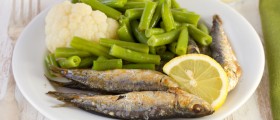

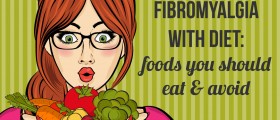
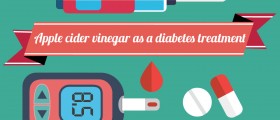




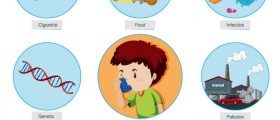
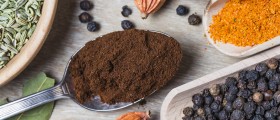


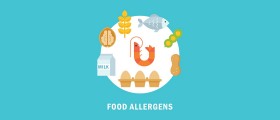












Your thoughts on this
Loading...